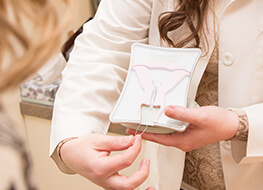Gynecology Services
Our gynecology services include caring for women of all ages–whether it is your first visit to the gynecologist or you are having post-menopausal issues. We provide preventative care, and we diagnose and treat gynecology problems that you may have.


Annual Exams
Annual well woman examinations
are covered by most insurance companies. It is a preventative service to help you maintain your health and try to identify potential problems before they become serious issues. Consider it as an opportunity for you to receive:
- Preventative screening tests and exams
- Information about conditions and diseases that you might be at risk for based on your medical history, family history and, lifestyle choices
- A chance to discuss your health concerns and how you might manage or improve your health
an appointment
(304) 599-7075
Preventative care
Depending on your age
and medical history, preventative services might include:
- Pelvic exam
- Pap smears
- Adolescents
- Medicare screening guidelines
- Breast exam
- Immunization counseling
- Referral for mammogram
- Referral for bone density testing (DEXA scan)
- Referral for colon cancer screening (colonoscopy)
- Contraceptive and family planning counseling
- Menopausal Hormone Therapy counseling (MHT)
- Healthy living recommendations
- Diet
- Exercise
- Smoking cessation


